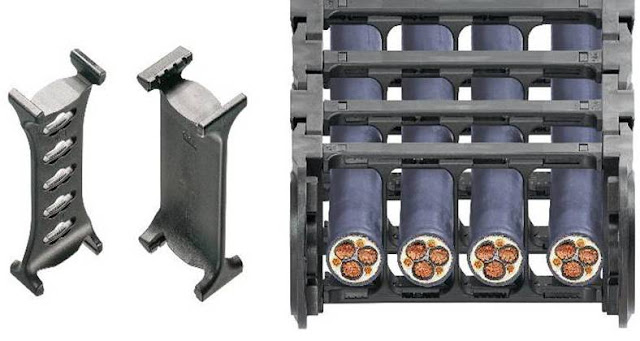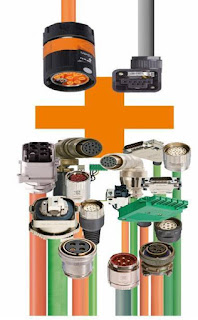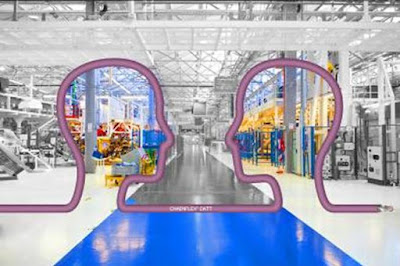Image PM4015-D-1
igus tests the abrasion resistance of 3D print
filament iglidur J260 in comparison with ABS and injection-molded parts in
their test laboratory.
(Source: igus GmbH)
(Source: igus GmbH)
With high-performance plastics and additive manufacturing, two modern
technologies which combined promise maximum freedom in construction and high
abrasion resistance meet. In the igus test laboratory, tribological filaments
of iglidur material J260 went up against conventional 3D print filaments (ABS)
and injection-molded parts of the same igus material. Intensive linear and
rotating test runs were carried out and evaluated in the in-house test
laboratory on hardened, ground shafts of both steel and stainless steel over a
period of several months. Because additive manufacturing with lubricant- and
maintenance-free high-performance plastics is still a comparatively young
field, the material experts at igus GmbH encountered an open-ended experiment.
The result was surprising. It was clear that in both the linear and
rotating tests, the abrasion resistance of bearings printed with tribological
filament were comparable to the classical injection-molded components, even on
both shafts. Thus where abrasion resistance is concerned, the printed
components are almost on a par with the injection-molded components. Once
again, the tests also clearly demonstrated that in comparison with conventional
3D print materials, the coefficients of friction for tribological filament are
especially low. Thus in experiments pitting ABS against tribological filament,
the rotating test on the stainless steel shaft even resulted in complete
failure of the ABS part, while friction loss for tribological filament was
still low. With these actual tests, the testers could demonstrate yet again how
motion plastics play out their strengths in movement, even in 3D print. This is
why it is possible for printed parts such as bearings or worm gears to be
directly installed and used across industries.
Image PM4015-D-2a & -2b
Result of the test marathon: Here, the low abrasion
rate of the tribological filament iglidur J260 comes out ahead in linear and
rotational movement. (Source: igus GmbH)
Now 3D print your parts with igus
For igus, additive manufacturing is one more step to give the design
engineer the greatest possible freedom in construction with lubricant- and
maintenance-free plastics. The motion plastics specialist igus already
introduced the world's first tribological filament for 3D printers last year,
and has now expanded the series to a total of four materials. Since the
Hannover Messe, igus has also offered a 3D print service. Customers can turn to
igus with their 3D data and have their parts printed quickly and without
complications. Delivery times for printed parts depend primarily on the
complexity of the components; still, here too the goal is delivery within 24
hours.
Image PM4015-D-3
With a selection of four tribological filaments and
the 3D print service, igus offers customers the possibility to print
maintenance and lubrication free special parts and small series. (Source: igus GmbH)
About igus India
igus® operations in India started
in the year 1998 with head quarters in Bangalore. igus offers widest range of
products that includes polymer bearings, igubal® spherical bearings, flexible
conduit etc. which enable them to
serve the whole industrial establishments in India from a small work shop to
huge industrial establishments.
















